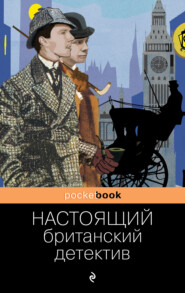По всем вопросам обращайтесь на: info@litportal.ru
(©) 2003-2025.
✖
Рассказы об отце Брауне / Stories of Father Brown. Книга для чтения на английском языке
Настройки чтения
Размер шрифта
Высота строк
Поля
First, there came a long rush of rapid little steps, such as a light man might make in winning a walking race. At a certain point they stopped and changed to a sort of slow, swinging stamp, numbering not a quarter of the steps, but occupying about the same time. The moment the last echoing stamp had died away would come again the run or ripple of light, hurrying feet, and then again the thud of the heavier walking. It was certainly the same pair of boots, partly because (as has been said) there were no other boots about, and partly because they had a small but unmistakable creak in them. Father Brown had the kind of head that cannot help asking questions; and on this apparently trivial question his head almost split. He had seen men run in order to jump. He had seen men run in order to slide. But why on earth should a man run in order to walk? Or, again, why should he walk in order to run? Yet no other description would cover the antics of this invisible pair of legs. The man was either walking very fast down one-half of the corridor in order to walk very slow down the other half; or he was walking very slow at one end to have the rapture of walking fast at the other. Neither suggestion seemed to make much sense. His brain was growing darker and darker, like his room.
Yet, as he began to think steadily, the very blackness of his cell seemed to make his thoughts more vivid; he began to see as in a kind of vision the fantastic feet capering along the corridor in unnatural or symbolic attitudes. Was it a heathen religious dance? Or some entirely new kind of scientific exercise? Father Brown began to ask himself with more exactness what the steps suggested. Taking the slow step first: it certainly was not the step of the proprietor. Men of his type walk with a rapid waddle, or they sit still. It could not be any servant or messenger waiting for directions. It did not sound like it. The poorer orders (in an oligarchy) sometimes lurch about when they are slightly drunk, but generally, and especially in such gorgeous scenes, they stand or sit in constrained attitudes. No, that heavy yet springy step, with a kind of careless emphasis, not specially noisy, yet not caring what noise it made, belonged to only one of the animals of this earth. It was a gentleman of western Europe, and probably one who had never worked for his living[26 - who had never worked for his living – (разг.) которому никогда не приходилось зарабатывать себе на жизнь]
Yet, as he began to think steadily, the very blackness of his cell seemed to make his thoughts more vivid; he began to see as in a kind of vision the fantastic feet capering along the corridor in unnatural or symbolic attitudes. Was it a heathen religious dance? Or some entirely new kind of scientific exercise? Father Brown began to ask himself with more exactness what the steps suggested. Taking the slow step first: it certainly was not the step of the proprietor. Men of his type walk with a rapid waddle, or they sit still. It could not be any servant or messenger waiting for directions. It did not sound like it. The poorer orders (in an oligarchy) sometimes lurch about when they are slightly drunk, but generally, and especially in such gorgeous scenes, they stand or sit in constrained attitudes. No, that heavy yet springy step, with a kind of careless emphasis, not specially noisy, yet not caring what noise it made, belonged to only one of the animals of this earth. It was a gentleman of western Europe, and probably one who had never worked for his living[26 - who had never worked for his living – (разг.) которому никогда не приходилось зарабатывать себе на жизнь]
Вы ознакомились с фрагментом книги.
Приобретайте полный текст книги у нашего партнера:
Приобретайте полный текст книги у нашего партнера:

















